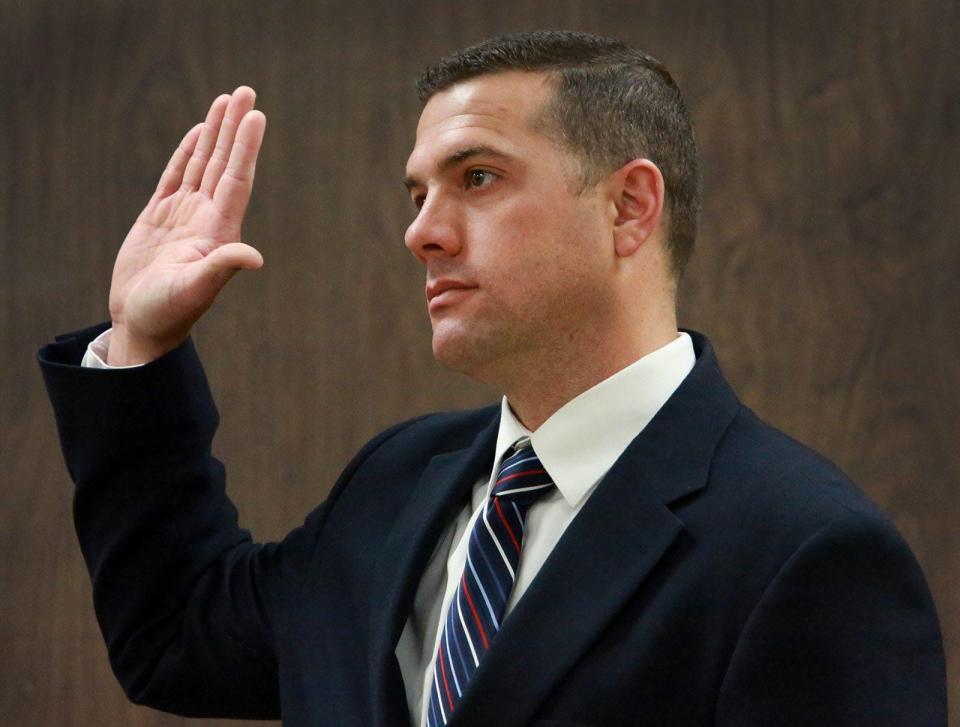NH Supreme Court rejects back pay for fired Portsmouth police officer Aaron Goodwin
CONCORD — The New Hampshire Supreme Court has, at least temporarily, struck down two years of back pay for former Portsmouth police officer Aaron Goodwin, finding the arbitrator who awarded him the payment "committed an error of law."
The high court's ruling comes in response to an appeal filed by the city of Portsmouth, its police commission and police department vs. the Portsmouth Ranking Officers Association NEPBA, Local 220. The union represents Goodwin, who was fired in 2015 for exerting undue influence to gain a $2 million inheritance from Geraldine Webber, a 92-year-old Portsmouth resident with dementia.

Portsmouth had appealed to the Supreme Court after an arbitrator ruled in 2020 Goodwin was poorly managed and improperly fired, during a dispute over his inheritance from Webber, entitling him to about two years of back pay.
The arbitrator had awarded Goodwin back pay from the date of his termination on June 24, 2015, to Aug. 7, 2017. (The amount was $145,000, a city labor lawyer said in 2020.)
The Supreme Court vacated a superior court’s confirmation of the arbitrator’s award and remanded the case to the superior court with instructions to remand to the arbitrator to reconsider the monetary award to Goodwin.
More local news: Portsmouth seeks partners for hockey rink, sports complex. What could happen next?
The city argued to the Supreme Court that Goodwin should be awarded only about two months of back pay: June 24, 2015 through Aug. 20, 2015 — the date of a damning probate court decision concluding Webber's 2012 will and other estate planning documents “must be invalidated as the product of undue influence exerted by ... Goodwin.”
The city argued the arbitrator’s decision to award two years of back pay was a "mistaken application of the after-acquired-evidence doctrine." The Supreme Court ruling issued this week explains: "After-acquired evidence is evidence of an employee’s misconduct — discovered by the employer after it has terminated the employee for an unlawful reason — which is so severe that the employer would have terminated the employee on those grounds alone had it known of the misconduct."
The Supreme Court concluded "as after-acquired evidence, the Probate Decision was not used to justify Goodwin’s termination, but only to mitigate his remedy."
The high court ruling further states "the arbitrator misapplied the law to the facts when she treated the Probate Decision as a second ground for Goodwin’s termination" and the city of Portsmouth "has shown that the arbitrator, by relying in part on an erroneous legal conclusion, committed an error of law that prevented her 'free and fair exercise of judgment' regarding the backpay award."
It was not immediately known when the superior court will next take action on the Goodwin case following the Supreme Court ruling.
More local news: This $4.8M New Castle home sale powers Seacoast real estate records in a tough market
This article originally appeared on Portsmouth Herald: NH court rejects back pay for fired Portsmouth officer Aaron Goodwin

